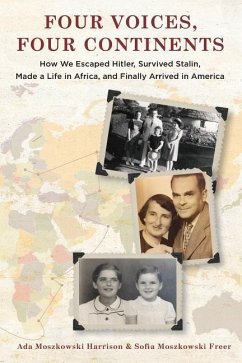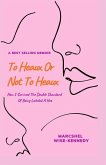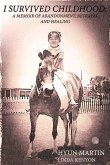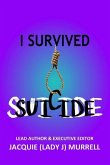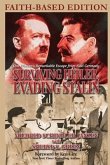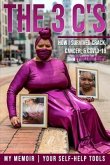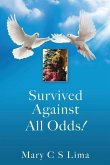The Moszkowski family was one of the fortunate ones. The family's journey during and after World War II began when they fled Poland in 1939, under Hitler's Luftwaffe aerial assault. Theirs is not a typical Holocaust escape story. Father Arthur Moszkowski's position as an engineer afforded the family a path that was not possible for many Jews. Although they endured life-threatening hardships during a decade-long journey, they avoided the concentration camps where six million Jews perished. A combination of courage, coincidence, and chutzpah allowed the family to survive the war and eventually immigrate to the United States in 1950. Authors Ada and Sofia tell riveting stories from their childhood and youth in pre-war Poland, in a Siberian labor camp, and then as the only Jewish family in a Polish refugee camp in Tanzania. Sofia was just a toddler when the family was deported to Siberia in 1940, but Ada, seven years older, acutely remembers the day Russian soldiers knocked at the door of their temporary home in Czortków, Poland. Two other voices are vital to the story. Translations of audio tapes Arthur recorded in Polish describe parts of the family's journey through Poland, Russia, and into Iran. The rediscovery of these tapes, decades after their father's death, were the impetus that spurred Ada and Sofia to write their family history. Father, an engineer who knew eight languages, appears as a heroic figure throughout the book, though his risk-taking sometimes endangered the very lives he tried to save. Quoted excerpts from their mother Dora Moszkowski's memoirs, published in 1987, fill in gaps in her daughters' childhood memories and explain some of the difficult choices the family had to make. One more character in this story is silent but important. It is that of Józia Laszczyk, the devoted housekeeper and nanny, a Polish Catholic woman who remarkably stayed with the family and proved to be a pillar of strength throughout the most arduous parts of their journey. Ada and Sofia make it clear that Józia strongly influenced their early lives, at times playing the role of mother when they most needed a loving word or touch. It was not unusual for Jewish middle-class families in 1930s Poland to hire Catholic nannies and housekeepers. But to have one support a family throughout a perilous, three-continent journey while leaving her own relatives behind in Poland is definitely out of the ordinary. The book is adorned with family photos from Poland in the 1930s and Africa in the 1940s. Ada and Sofia's writing preserves not only a family history, but a journey that deserves to be remembered in the annals of their generation's history.
Hinweis: Dieser Artikel kann nur an eine deutsche Lieferadresse ausgeliefert werden.
Hinweis: Dieser Artikel kann nur an eine deutsche Lieferadresse ausgeliefert werden.

